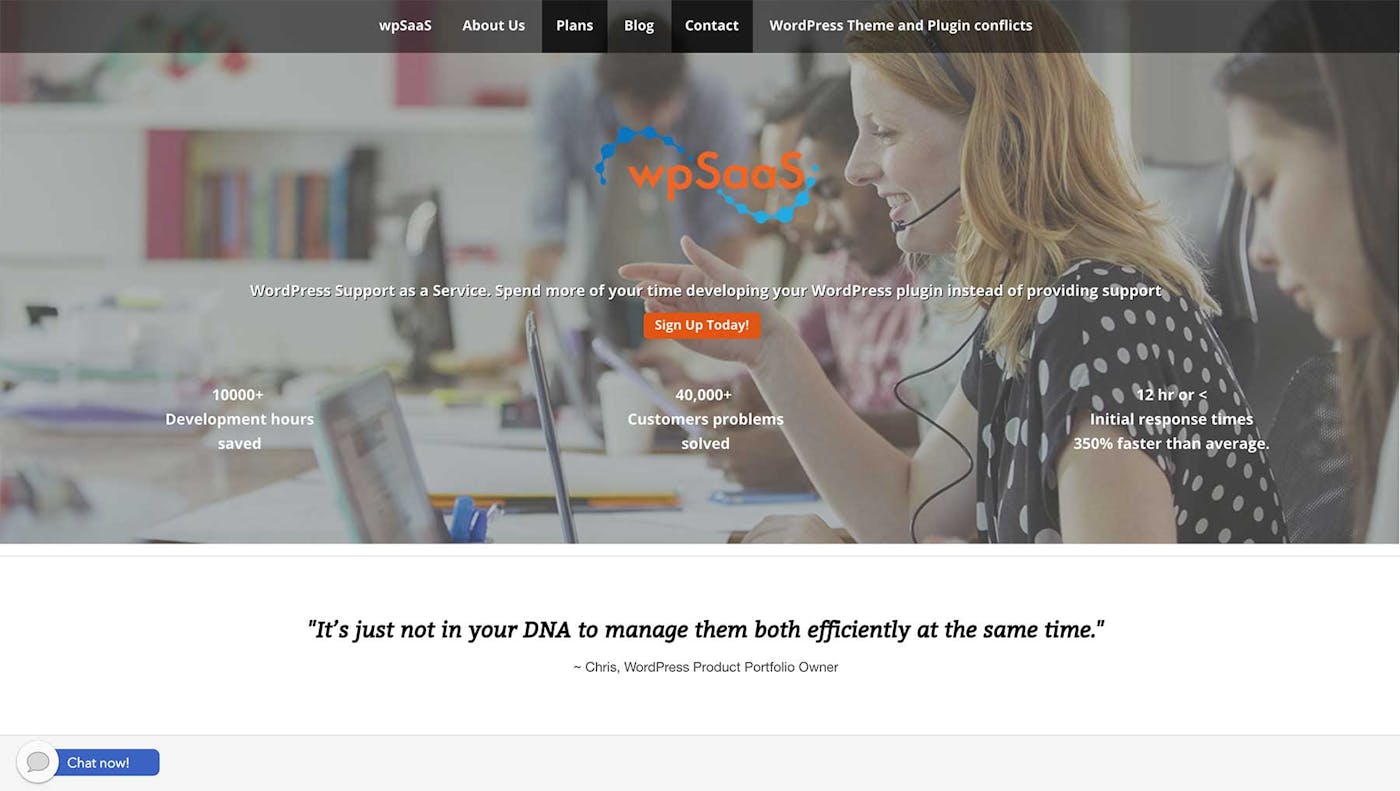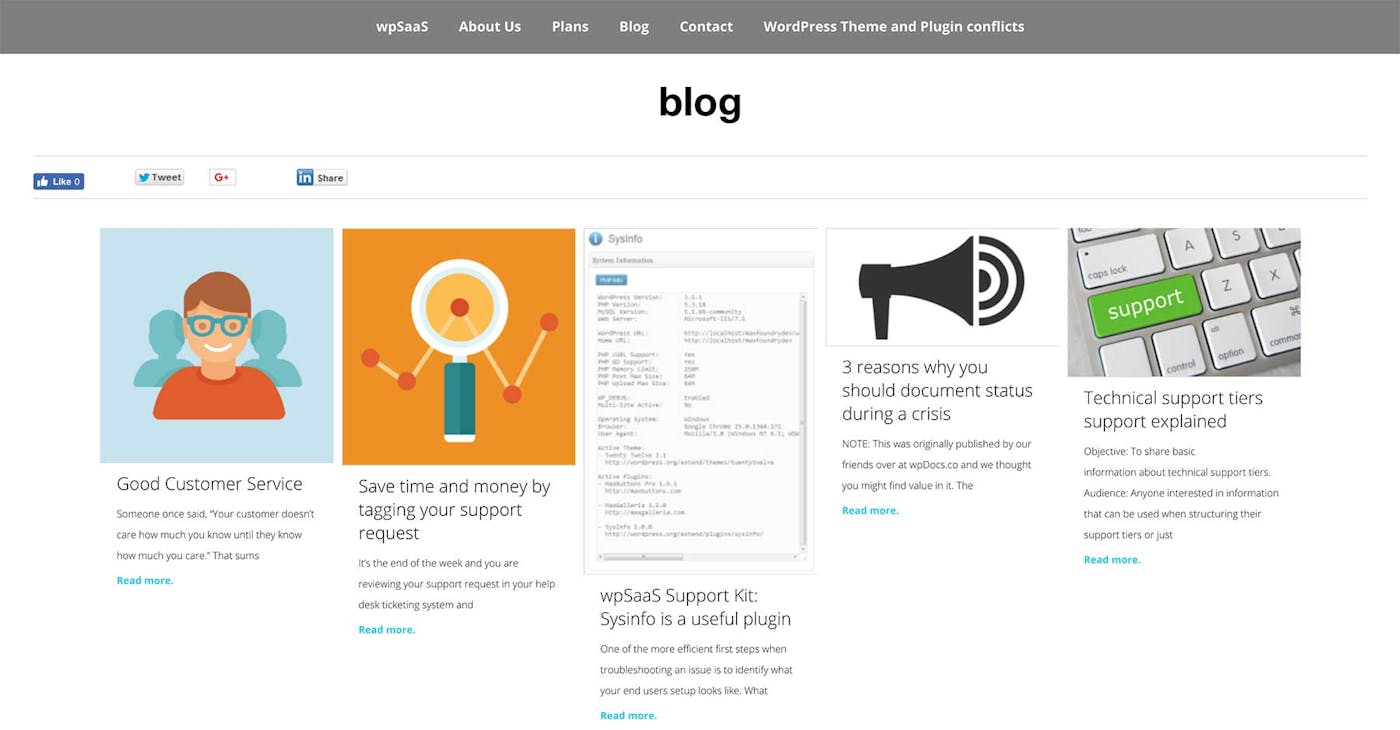How I Productized a Skill That Others Were Willing to Pay
For
Hello! What's your background, and what are you working on?
My name is Kyle M. Brown, and I am passionate about using technology to solve problems. I've worked in the technology industry in one capacity or another — telecommunications, as a consultant, and as a hobbyist — for the past two decades. I have more than a decade of experience in making enterprise operations efficient.
I recognized that there were many software products available on the web that were technically sound and well designed, but when it came to support, they had little or, in some cases, none. So I founded wpSaaS to help tech company founders spend more time developing, focusing on strategy to build their businesses, or just sitting on a beach and less time handling support for their products.
We do this by providing tier one support services for WordPress plugins and SaaS/software products. We were doing $1,000 in monthly revenue in our first 30 days as a part-time business and are several multiples past that today.

What motivated you to get started with wpSaaS?
I was looking for an opportunity in the online software space where I could use my experience and background while helping other people, which led me to this idea. I validated it by building a landing page that outlined the value proposition. It was something like, "Spend more time developing by letting us handle your support." I then reached out to WordPress developers and product owners with similar messaging and directed them to the page.
The level of interest and type of feedback helped us validate the idea. I considered a documentation SaaS which tanked miserably. Mostly I think this was because I didn't validate that there was a market before building a product. There were other mistakes as well, but I believe that was the largest.
I have specialized in enterprise operational efficiency for many years. I've been able to leverage that expertise and make some adjustments so that it works well for SaaS companies. At this time, I am working on wpSaaS and consulting.
What went into building the initial product?
As a service, the amount of time to launch was minimal when compared to a product. I single-handedly handled all of the support requests on day one. We were open for business. If you include setting up a webpage and hosting, and finding a good name, it took maybe four days total to get started. I decided that although it would be a service, it would need to be a productized service with boundaries. Since our audience was mostly solo founders that like to be involved with coding, I decided tier 1 support would be our approach.
At the time, I was working a full-time corporate gig. I knew my hours per day would be limited, so I setup and structured the business with that in mind. I self-funded all of the upfront costs by leveraging money that would otherwise go to entertainment and savings. Either way, being a services business, most of the upfront investment was time more than money.
A lot of things helped. The support of my family, the large amount of tech and business material I had read over time. I experimented with a lot of ideas. What may be most important is that I leveraged mastermind groups and online communities where other like-minded entrepreneurs gathered.
How have you attracted users and grown wpSaaS?
We launched rather quietly with a single customer. Nothing fancy. I cold called people that I thought might be interested in such a service. There were plenty of public places where I could easily identify WordPress developers, such as wordpress.org/plugins. There were also other marketplaces where WordPress plugins were sold. It's how we found our first customer. We grew via word of mouth for two years. As a productized services company our web traffic was not much of a factor with our customer acquisition.
My advice to anyone trying to build a productized service or product business would be to find people who are willing to pay you for a service or product with minimal meetings and active persuasion. That should happen before a single line of code is written.

What's your business model, and how have you grown your revenue?
We primarily generate revenue through monthly subscriptions. We also generate revenue by providing other services, such as end-user and in-house documentation and release testing. We set up Stripe since we use a metered billing method, and we use that and PayPal subscriptions for our billing purposes. Zapier comes in handy at times for receipts and invoicing.
While I'd like to give specifics because they're important, I can't go into too much depth at this time. I can say that today the company generates more than $10,000 per month in revenue. Our growth has been organic and based on working with our clients to provide other operation services such as documentation and process development.
Our margins are in the range of 50-70% and have been since day one. Often when it comes to operations, founders consider it as something that they can get to later. So there are no processes, methods, or systems put in place early on. While revenue is important, unfortunately that is not an approach I would recommend because everything falls on the founder or founders, and it is much more difficult to pivot an operations strategy after the business launches, because your focus will be in many other places.
What are your goals for the future, and how do you plan to accomplish them?
Our goals today are to scale the business organically while helping as many founders as possible focus on building their businesses by leveraging enterprise techniques. Sometimes educating founders on the value of efficient operations can be a lengthy process, but we are hopeful that the results of our previous customers will shorten the cycle.
We plan to accomplish our goal by identifying and working with an audience of customers that understands the value or operational efficiency.
What are the biggest challenges you've faced and obstacles you've overcome? If you had to start over, what would you do differently?
Given my experience in operations, our mistakes were minimal with wpSaaS, but we did make some. I'd say that I made a lot of my mistakes in previous ventures before starting this company.
However, there is one thing that does come to mind, and it has nothing to do with expertise: mindset. We underestimated how attached some founders can be to the idea of doing everything themselves, including support. Never conclude that you can change someone's mindset on your schedule. People's attitudes are very difficult to change, and they change on their own schedule, if ever.
What were your biggest advantages? Was anything particularly helpful?
There are too many for me to get this 100% accurate, but I can tell you a few that are top-of-mind:
Books:
People:
Too many to name. My family and entrepreneurial community of friends provided never-ending support, which is very valuable in the entrepreneurial grind.
Resources:
- https://www.foundercafe.com/
- http://www.startupsfortherestofus.com/
- http://thisweekinstartups.com/
- https://steveblank.com/
- http://discuss.joelonsoftware.com/ (closed, but I believe this is a great alternative: http://discuss.bootstrapped.fm/)
I am great at identifying and executing operational efficiencies by putting processes and systems in place.
I also think that timing was good in terms of the growth of online products being created by single or small teams in need of help with operations.
What's your advice for indie hackers who are just starting out?
One mistake that I made and see others making was that I placed too much emphasis on the technology and tools, and not enough emphasis on finding product-market fit first.
I spent years floundering around with many other ideas that had minimal or no chance to realize the results I desired before I understood this.
Where can we go to learn more?
You can find me on Twitter (@kylmbrown, @wpSaaS) or on the web at www.kylembrown.com, www.wpsaas.net.
I talk to people all the time. I enjoy taking questions about technology, business, and of course operations.

I like the concept of productizing a skill. It’ll help to take my side project to the next level. Thanks @wpsaas
Wishing you all the best with your project :-) To be honest, the website design looks a bit outdated to me - plus there are minor flaws like the header image on the start page that doesn't scale for larger screens. I'm sure that some rework would underline your competencies even more :-)
Thanks for the feedback.
We are in the process of a redesign. Sorry about that.
I assure you we have customers that can speak to the value of what we do and would be happy to make an introduction for you.
Great Job !This inspires me to continue on my path .
I am so pleased that this inspired you. Keep moving forward!
Which one helped you the most?
Without a doubt, the https://www.foundercafe.com/ was the most valuable community of like minded individuals that I found on the net.
hey dude awesome! one pointer though your layout is not properly rendering on my monitor (24"?) It doesnt occupy the entire space and just leaves a big white gap!
Thanks! I will have the webteam look into it asap.
Congrats Kyle! "High priced" subscription models are my absolute favorite, your product market fit needs to be spot on to get people to buy but then you can grow the revenue a lot with every customer acquired (not envious at all hahaha).
Best of luck to grow to keep growing this!
We provide a service to customers in a model that works well for each party.
Seems to be working that way and we will continue to work to make it valuable for each party!
Thanks!